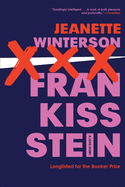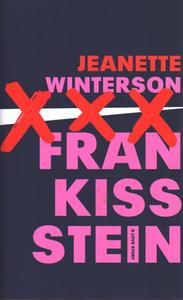
 This fiendishly brilliant romp across time from Whitbread Prize-winner Jeanette Winterson (Oranges Are Not the Only Fruit, The Gap of Time) is the rollicking, philosophical novel of human rights, gender constructs, artificial intelligence and sexbots the world didn't realize it needed.
This fiendishly brilliant romp across time from Whitbread Prize-winner Jeanette Winterson (Oranges Are Not the Only Fruit, The Gap of Time) is the rollicking, philosophical novel of human rights, gender constructs, artificial intelligence and sexbots the world didn't realize it needed.
During a rain-soaked holiday at Lake Geneva in 1816, young Mary Shelley, her husband, Percy, their friend Lord Byron, Byron's lover Claire, and physician Polidori huddle indoors, struggling to stave off boredom with alcohol and conversation. A debate over the nature of the human soul results in Byron challenging all assembled to write tales of the supernatural. Mary pens the seminal sci-fi/horror novel Frankenstein, but her story does not end with its writing. Winterson follows Mary as she watches her husband, peers and children die during her youth while modernization changes her world and devastates the working class. "What is the point of progress if it benefits the few while the many suffer?" Mary wonders, drawing a parallel for the reader between the mechanical looms of Regency England and today's automation boom.
In an interwoven narrative set in Brexit Britain, transgender doctor Ry Shelley falls under the spell of AI expert, genius and "high-functioning madman" Victor Stein, who eroticizes Ry's "doubleness." Stein envisions a world in which "humans will be like decayed gentry" while AI and human minds uploaded to robotic bodies take over as the dominant species, and he sees Ry's physical modifications as emblematic of that future. To that end, he pursues ethically questionable research in secret, with Ry lifting body parts from the cryogenics facility where he works to supply his lover's laboratory. While Victor sets his cap at upgrading humanity, Ry also keeps bumping into up-and-coming sexbot manufacturer Ron Lord, whose decidedly lower aim is to capitalize on men's basest desires.
Winterson's wit crackles in nimble dialogue and imminently quotable assessments of human nature as Mary and Ry face absurd and heartbreaking truths. Lamenting the human cost of automation during the Industrial Revolution, Mary realizes people are "forever wrecking the good we have for the little we have not" or, as Stein puts it later, "Humans: so many good ideas. So many failed ideals." Clearly cognizant that weighty, cynical themes can weigh down a narrative, Winterson takes full comedic advantage of the sexbots, including lengthy sales pitches, awkward moments and elaborate business plans built around Ron's so-called girls. Wise, bittersweet and cackle-inducing, Frankissstein looks in wonder and weariness at the cyclical nature of progress, the ways in which our bodies both define and limit us and love's insistence on complicating all of the above. As the famous film line says, it's alive. --Jaclyn Fulwood, blogger at Infinite Reads
Shelf Talker: Whitbread Prize-winner Winterson draws a direct line from Mary Shelley to a trans doctor bedeviled by his mad scientist lover, the march of progress and the occasional sexbot in this funny, incisive triumph.

